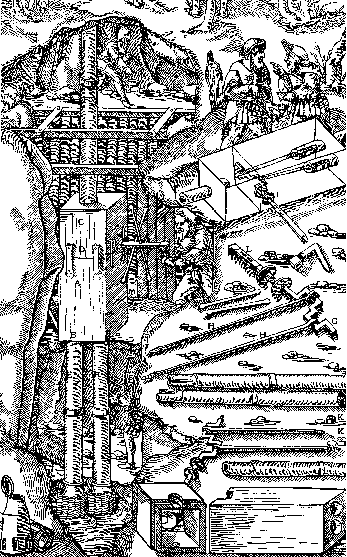Copyright (c) 1966, The Optical Society of America. Permission to copy
the original paper, other than fair use, must be obtained from the author
and the publisher.
Please refer to the external links page
for a link to the Optical Society web site.

by John Michael Williams, 1999. Placed in public domain.
The Pulfrich apparatus was used to study changes in localization error
and in variability of stereoscopic equidistance settings at various target
speeds and levels of illumination. In this context, localization error
would correspond to the constant error term in the personal equation, and
variability would correspond to a measure of stereoacuity.
Black targets were presented against an illuminated background. Speeds
from zero to 38 degrees visual angle per second, and retinal illuminances
from --2.3 to 4.2 log10 troland, were examined for three
practiced observers.
The resulting stereoacuity curves, plotted against illuminance, all showed
a distinct rod-cone break near the expected threshold of photopic vision.
These curves also all rose with increasing target speed, showing that
target velocity degraded acuity in a systematic way.
The resulting localization error curves showed a tendency to localize
the moving targets farther away than the actual (1 m) distance; for the
moving targets, this error tended to decrease very mildly with increasing
illuminance level and increasing target speed. However, for the
stationary (0 speed) case, the localization error rapidly declined to
about zero as the level of illuminance increased into the photopic range.
The discussion of the results analyzes the moving-target stereoacuity
findings in terms of: (a) the intensity-time relation (Bloch's law, which is
an adaptation of the Bunsen-Roscoe law of photochemistry); and, (b) task
difficulty depending on more central factors. The obtained localization
errors may help explain anomalously large distance settings consistently
obtained for the Pulfrich effect under some circumstances.
Back to Pulfrich Effect Home. University Privacy Policy
The Pulfrich Effect, SIU-C. Last updated 2000-07-23